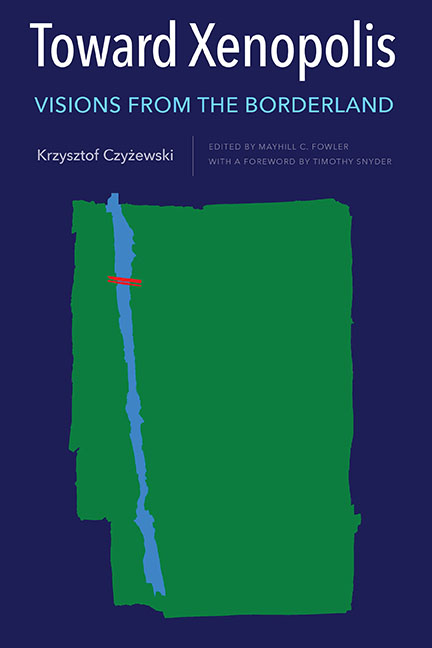Preface: Practicing the Borderland
Published online by Cambridge University Press: 16 July 2022
Summary
This happens inside of us. Both the chasm, and the threshold, and the darkness. Therefore, the unknown side does not lie outside of us. While reaching it, we turn toward the Other, who dwells within us. That is how we return to ourselves.
The artistry of the bond can be measured in going over to the other side, but its mystery in the way it makes return possible.
—from “Triestan Zeugma, ” by Krzysztof CzyżewskiThe essays gathered in this volume are about big ideas. They focus on places that may seem distant, whether elite universities in the United States or faroff small towns on the edge of northern Poland. The protagonists—artists and intellectuals—may seem as distant to the average reader as the places in which they write the texts with which Krzysztof Czyżewski engages here. And yet these essays could also be written about any small town or teeming metropolis, and they speak to the challenges that any reader anywhere might face in negotiating with neighbors, searching for belonging, or struggling to improve local communities.
The essays gathered here are full of movement. Note how often Czyżewski takes action in these texts: he walks the city of Vilnius and Chernivtsi; he crosses the border from Bosnia to Croatia; he talks with people, from famous poets to passersby. This active searching to understand Central Europe comes, I think, from his background in performance. Theatrical performance is at the heart of the work of the Borderland Center. Krzysztof Czyżewski andMalgorzata Sporek-Czyżewska, with friends Wojtek and Bożena Szroeder, were theater artists, people who believed in the power of art to change society. Because Poland lacked its own state for so long, from 1795 to 1918, places like theaters became more important than simple houses of entertainment. Oddly, the Soviet socialists also believed in the power of the arts to effect social and political change; of course, this meant state monopoly and organizing from above, yet the power of storytelling survived in the socialist sphere. The years 1990 to 1991, when the artists moved to Sejny, was a time of massive transformation, from socialist Poland to democratic Poland, from a world dominated, in Eastern Europe, by the Soviet Union, to a patchwork of multiple independent states. Sejny was bordered no longer by the USSR, for example, but by independent Lithuania and Belarus.
- Type
- Chapter
- Information
- Toward XenopolisVisions from the Borderland, pp. xiii - xviPublisher: Boydell & BrewerPrint publication year: 2022



